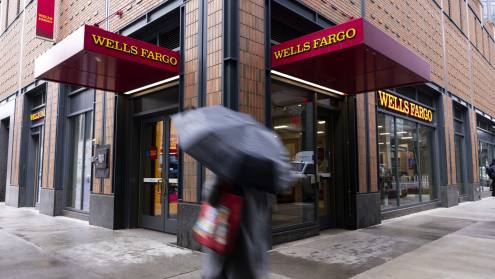Merger and acquisition volumes are expected to pick up in the second half of 2024 after a few years of limited activity, according to M&A experts speaking at an industry conference in London last week.
Investors and dealmakers have waited for cross-border mergers and acquisitions to pick up for at least a couple of years. The market has been dead since 2021, leaving banks hoping for sentiment to improve.
But there was also concern that confidence remains fragile while company boards, alongside their advisers, worry about political and economic instability.
Speaking at the UK Finance conference, Stuart Ord, co-head of M&A at Deutsche Numis, said: “As we look at the rest of the year in terms of earnings and base rate decisions, there is confidence around the outlook. And there is the relative attractiveness of the UK as an investment destination versus others.
“We’re also no longer bouncing along at the bottom of the G7 league table. Although we’re not at the top, we’re ahead of other places. The Brexit environment alongside the 2022 ‘mini’ Budget is behind us, and those are important to overseas bidders.”
Manny Chohhan, head of M&A, Europe and Americas at Standard Chartered, agreed and said a more stable environment creates firmer ground for deals.
“The key barometer at Standard Chartered for confidence returning to the market is more of our Western clients looking eastward for growth. And for that we probably need a tad more confidence for that to really create a flow of deals.
“But our clients are becoming more adventurous and it’s beginning to emerge. We have a client who is actually beginning to show signs of real ambition across Asia,” he said.
“We have seen more consolidation deals within countries and it is a far better environment compared to 12 months [ago].”
Iain Fenn, partner at Linklaters, said there has been a “significant pick-up” in optimism compared to just eight weeks ago. Yet shocks rooted in geopolitics or the financial system could derail any momentum.
There have been several false dawns in M&A over the past couple of years where hopes of new deals were dampened by industry or broader events, from the Credit Suisse collapse to the war in Gaza and the UK “mini” Budget, which have decreased the appetite for deals.
Fenn added: “The other headwind and one of the real challenges of last year was the big difference in the valuation expectation of buyers and sellers, particularly in tech companies.
“UK public companies have still got very low value, so boards are still looking at the fundamental value of their business when they receive an approach. And so even if a bid is coming in at a significant premium on the share price, it’s still not reaching the fundamental value of the business. And I believe the gap is closing.
“We will see more deals, and I think the back end of the year is going to get really interesting. But there is still a big gap. So that’s what I see as probably the most significant headwind.”
Fenn also said he did not see elections in the US or UK as significant factors on how the M&A story will play out.
AI and ESG
The panel also looked at how artificial intelligence and environmental, social and governance factors might shape how M&A deals are done. Ord cited Deutsche Numis research that surveyed 200 FTSE 350 companies and 200 institutional investors in the UK.
One in four said generative AI will affect their M&A strategy this year, with Ord comparing it to the phenomenon of the internet in the 1990s. He forecast activity across the tech sector with large companies engaging in M&A to either improve their products or defend market share. Additionally, smaller companies will seek investment and might have high valuations.
“All of this is good for the UK because as the investment comes in, a lot of it comes out of universities and start-ups, which we are very good at,” Ord said.
He also pointed out that generative AI can help clients and their bankers to originate potential deals.
“We know there are FTSE 350 companies that use it to scan across the globe and try to work out what they should look at. Otherwise it is bankers knocking on the door, often with the same idea and working through that with corporate development people.
“So you can short circuit and save a huge amount of time and a huge amount of cost with generative AI.”
Generative AI can also help in terms of documentation such as producing a prospectus and with due diligence, he said.
“Nonetheless, generative AI will not remove the need for expert professional judgement and we need to have the right parameters so that we’re not missing things. But it is going to change the way we do business,” Ord continued.
On ESG, Chohhan said an interesting development from an advisory perspective is how clients want to report their progress to stakeholders. “Most of us on the M&A side are familiar with telling clients about the earnings impact or the leverage impact of a particular deal,” he said.
“Clients increasingly want to know the ESG impact of a particular deal and have a set of benchmarks they can show stakeholders. And what we’ve had to do at Standard Chartered in our ESG advisory team is to help clients calibrate these milestones.
“So you can actually tell the market in a verifiable form: ‘This is the impact of a particular M&A deal to help meet ESG commitments’. That is where things are getting a bit more nuanced and interesting.”
Fenn said that ESG risks concern environmental damage alongside brand reputation with the latter growing more prevalent over recent years. So a company must be careful with an acquisition as there has been a lot of greenwashing that has resulted in greater due diligence.
The other dimension that has changed is people are more selective with who they partner with on business ventures. “We have certainly seen bidders take a slightly lower price for a company with a better reputation,” Fenn said.
Future of London
Chohhan argued it is important to not only see London as a marketplace but also a system of rules, conventions and practices that has been exported globally.
So this can benefit UK clients who want to find deals in global markets and for non-UK clients that want to come to London.
He said: “We sometimes underestimate these aspects of London. We are often advising clients in far flung places that are familiar with the UK system.
“Our perspective at Standard Chartered on London is that these conventions and practices allow us to actually do more cross-border business, both outwards and inwards.”













